Audionet AMP and PRE1 G3 preamplifier

 Audionet of Germany has been receiving a lot of major press here in the states of late. I’ve heard only good things about them from many audiophiles and friends who have heard them as well. Audionet may be new to many here Americans but they’ve been manufacturing fine audio products for well over two decades. If I’m not mistaken, it was back in 2012 at the High End Show in Munich where I got to hear a bevy of Audionet gear driving the a pair of Ascendo System M loudspeakers that Clement Perry (CP) and I fell in love with for a number of years (photo below). I too once used the slightly smaller Ascendo System Z as my refrence so you might say I know a thing or two about what the Ascendo loudspeakers are capable of. I’ll never forget how taken I was by the sound of this suite. I am pretty certain I never heard the Ascendo’s bass sound so controlled coupled to such a glorious midrange as when paired with Audionet electronics.
Audionet of Germany has been receiving a lot of major press here in the states of late. I’ve heard only good things about them from many audiophiles and friends who have heard them as well. Audionet may be new to many here Americans but they’ve been manufacturing fine audio products for well over two decades. If I’m not mistaken, it was back in 2012 at the High End Show in Munich where I got to hear a bevy of Audionet gear driving the a pair of Ascendo System M loudspeakers that Clement Perry (CP) and I fell in love with for a number of years (photo below). I too once used the slightly smaller Ascendo System Z as my refrence so you might say I know a thing or two about what the Ascendo loudspeakers are capable of. I’ll never forget how taken I was by the sound of this suite. I am pretty certain I never heard the Ascendo’s bass sound so controlled coupled to such a glorious midrange as when paired with Audionet electronics.
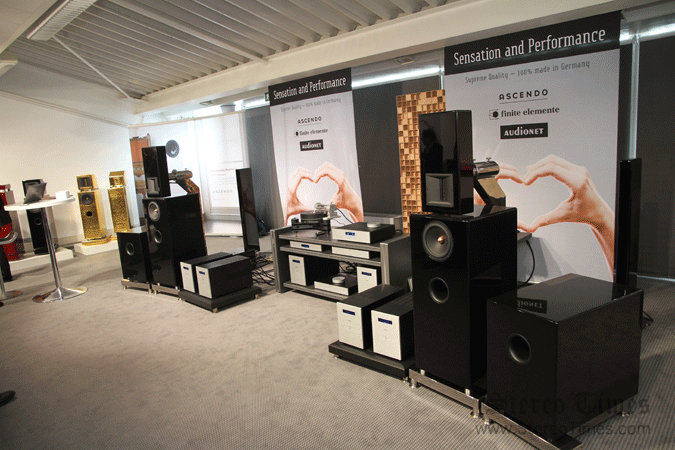
At 2015’s High End Show in Munich, CP and I ended up once again in the Audionet suite where they were teamed up with a pair of YG Acoustics and once again, provided outstanding sound quality (CP did a recent story on the mighty combination of YG and Audionet here). Fortunately Bill Parish of GTT Audio, who coincidentally serves as the North American importer for Audionet was present. This gave me the opportunity to talk with him of my interest in reviewing Audionet products. Some weeks later, Bill Parish called and asked if he could personally deliver the Audionet review samples since his NJ store is only about an hour drive from my lower Manhattan, NY residence. Parish arrived as promised on a warm Friday afternoon in June and setup a pair of the Audionet AMP mono amps (which at 55 lbs per unit, were relatively easy to move around), and PRE 1 G3 preamplifier with its EPS G2 external power supply. I could tell right from the looks of these components I was going to have a great summer!
The Audionet’s design is elegant and utilitarian with the inherit build-quality one would expect from any Germany brand. Looking for Bling? Seek elsewhere! There’s none here. The manufacturers place their expertise where it counts the most: on the inside. As there are two finishes available (silver and black), the review sample came in silver and they matched nicely in my rack. After setting up the Audionet gear Parish wanted to make sure that everything was functioning perfectly so I hit the play button on my Pi Greco Sinfonia CD player and from the very first track, I liked what I heard. Parish looked at me and smiled. He knew right then that I was impressed with what I had heard and, better yet, they are sensibly priced compared to what’s out there in today’s crazy market.
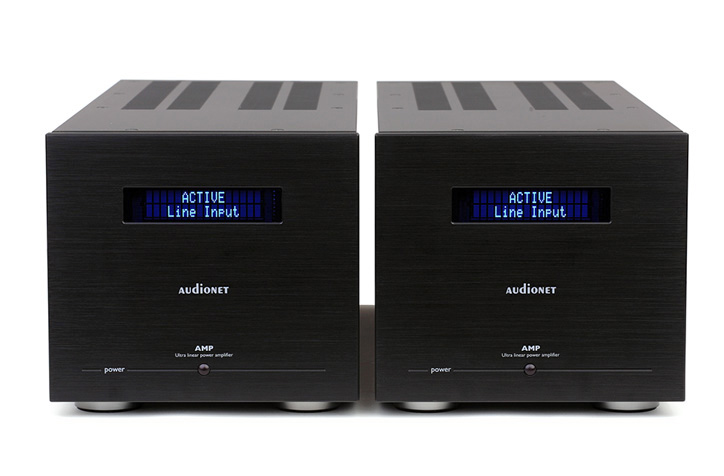
The Audionet AMP is a powerful 200 watt, solid-state mono amplifier. Utilizing Audionet’s state-of-the-art highly praised ULA (Utra-Linear-Amplifier) technology, this complex circuit topology was originally engineered for medical usage. Internally, the Audionet AMP utilizes the finest components available and are custom-made to Audionet’s specifications for critical applications such as, the “miniaturization techniques” employed to insure the shortest signal paths possible. Amazingly, the Audionet AMP is devoid of sound-impairing components such as coils, chokes, and/or relays. Brilliantly, the input stage is separately powered with an 80VA toroid core transformer with an astounding gain-bandwidth exceeding one Gigahertz. The input stage is configured as a double differential amplifier with a low-noise monolithic dual FET, thus making the end amplifiers electrically independent of the input signal and avoiding any harmful interaction with the power source. The output stage is equipped with matched six power MOSFETs, with actively controlled bias current to 0.6A, delivering a healthy 200/350-watts per channel at 8/4 Ohms. The supply voltages are stabilized as rapidly as possible by optimizing discrete MOSFET regulators, whose basic supply comes from an encapsulated 850-VA toroid-core-transformer which utilizes two special fast and impulse-resistant high-current capacitors with a total filtering capacity of 188,000uf. Intelligently, the AMPs utilize a microprocessor unit to control all functions which constantly monitors DC, HF oscillation, temperature and overload. Finally, when there is an anomaly, it automatically disconnects the AMPs from the main power supply.
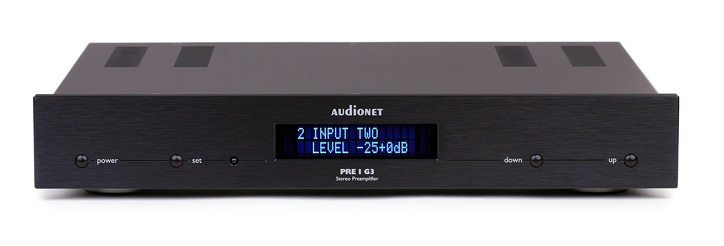
The Audionet PRE1 G3 preamp is a high bandwidth designed around its own state of the art microprocessor – controller. In order to optimize its stellar high-frequency attributes, circuit size has been reduced to the absolute minimum. Moreover, the remaining signal paths are kept to a minimum, and are as free of sound-critical components as possible. Yes! Less is more. From the outside, the PRE1 G3 looks meticulously built inside and out. Audionet boasts only carefully selected high-quality components, like the fast discrete voltage regulators with low-noise gallium arsenide precision voltage references, high audio-grade electrolyte capacitors with a silk dielectric and selected high-current film capacitors with the lowest possible loss angle. Inside we find silver/gold internal cabling.
The more I learn about high-end audio design, the more I see where the truth lies in the design. For instance Audionet uses gold-coated precision-relays to switch the input signal and earth. All wiring is star grounded at one central point. Whether it be a solid-state or tube design, lowering the distortion is the key (no pun intended). In the case of the Audionet, the input buffer is a cascaded, bootstrapped, monolithic double- FET, offering virtually infinite input impedance. A DC-coupled driver stage amplifies the signal distortion free for the subsequent circuitry. Cleverly, the volume and balance are set by an electronically switched, real time linearized high precision resistor network. The output driver combines high-speed bipolar op-amps with discrete A/B-drivers with high bias currency and the voltage for the input and output stage are additionally smoothed by two discrete ultra-fast bipolar regulators. An encapsulated 50 VA toroid core transformer and high audio grade electrolyte capacitors with a capacity of 30,000 uf provide the supply voltage. Brilliantly, like the AMP, the PRE 1 G3 utilizes a microprocessor to control and regulate the whole function. The digital section has its own power supply while the digital control is both physically and electrically isolated.

 The Audionet PRE1 G3, features a boatload of functionality. Located on the rear panel are five RCA, unbalanced inputs and one XLR, balanced inputs. On the output side, there is a single RCA output and one single XLR output. I was impressed to find two pair of RCA outputs for a dedicated subwoofer while a single (RCA) Record and Monitor output are also available. There are additional inputs and outputs: 2 optical Audionet Link out (Toslink) for remote operation, a 3.5 mm socket trigger output with 12V switching voltage (optional 5V), a 5-pole precision socket was used for the optional power supply EPS and 6.3 mm headphone socket. All using high-quality gold plated, Teflon insulated Furutech components.
The Audionet PRE1 G3, features a boatload of functionality. Located on the rear panel are five RCA, unbalanced inputs and one XLR, balanced inputs. On the output side, there is a single RCA output and one single XLR output. I was impressed to find two pair of RCA outputs for a dedicated subwoofer while a single (RCA) Record and Monitor output are also available. There are additional inputs and outputs: 2 optical Audionet Link out (Toslink) for remote operation, a 3.5 mm socket trigger output with 12V switching voltage (optional 5V), a 5-pole precision socket was used for the optional power supply EPS and 6.3 mm headphone socket. All using high-quality gold plated, Teflon insulated Furutech components.
The EPS G2 power supply is an external full-sized chassis power supply, to be used as an upgrade for future Audionet upgrades. As states on their website: “As a voltage source, the EPS G2 offers extremely precise and load-independent supply voltages. With these properties, EPS G2 comes close to an ideal voltage source without accepting the disadvantage of accumulators. EPS G2 is fed by a constant, low noise source usually used in laboratory environments.”
The Audionet AMP and PRE1 G3 preamplifier powered my reference conspiracy loudspeakers were paired with a complete set of Enklein Dave cables throughout the entire evaluation period. Fortunately, for me, the break-in period was quite short thank to Bill Parish. Due to these being used already, Parish told me to play the system for about one week or so before any serious listening. This Audionet AMP and PRE1 G3 duo exhibited no trace of that slightly thin or slightly dry and clinical sound I often associate with solid-state amplification. This combo produced an impressive sense of top-to-bottom continuousness and a smooth neutrality that never labored or felt slightly behind in the area of harmonic truth. The top-end was neither too bright nor rolled off or soft. The bottom end was neither lumpy nor thin. The midrange was smooth as silk without ever sounding the least bit metallic or two-dimensional (on well-recorded music of course). Tonal balance was fundamentally seamless and never sounded overdone or devoid of character. Instruments and voices from familiar recordings sounded as good as they should.
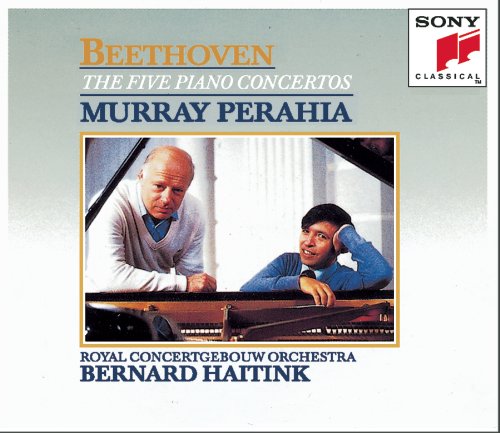 One weekend I was listening to nothing but the piano concertos and on one of my favorites is Beethoven’s Piano Concerto N0.3 Op.37 in C Minor performed by Murray Perahia and maestro Bernard Haitink conducting the Concertgebouw Orchestra. This piano concerto separates Beethoven from the classical music. In this mind-blowing concerto he produced a more varied and dynamic work rich in the turbulent emotions for which he was known. The Audionet AMP and PRE1 G3 rendered the music stunningly real, raw and rewarded me with new insights to one of my favorite recordings. Instrument timbres were portrayed in a very natural three dimensional plane, that was also remarkably free of grit, grain and glare. Notes flowed effortlessly – both piano and orchestrated passages are displayed with clarity, speed, and added dimensionality. At the same time, the system reproduced the orchestra’s full weight; producing a powerful dynamic contrast with excellent bass extension and control – as only solid-state often do – without producing the overhyped transient attack I sometimes also hear. Soundstage was another area that proved very impressive: it remained deep and wide and extended beyond the loudspeaker’s outer edges and far beyond my listening room.
One weekend I was listening to nothing but the piano concertos and on one of my favorites is Beethoven’s Piano Concerto N0.3 Op.37 in C Minor performed by Murray Perahia and maestro Bernard Haitink conducting the Concertgebouw Orchestra. This piano concerto separates Beethoven from the classical music. In this mind-blowing concerto he produced a more varied and dynamic work rich in the turbulent emotions for which he was known. The Audionet AMP and PRE1 G3 rendered the music stunningly real, raw and rewarded me with new insights to one of my favorite recordings. Instrument timbres were portrayed in a very natural three dimensional plane, that was also remarkably free of grit, grain and glare. Notes flowed effortlessly – both piano and orchestrated passages are displayed with clarity, speed, and added dimensionality. At the same time, the system reproduced the orchestra’s full weight; producing a powerful dynamic contrast with excellent bass extension and control – as only solid-state often do – without producing the overhyped transient attack I sometimes also hear. Soundstage was another area that proved very impressive: it remained deep and wide and extended beyond the loudspeaker’s outer edges and far beyond my listening room.
Listening to the second movement is even more intimate and emotional for me. Perahia starts off the second movement Largo superbly, making me feel as if time has stopped and as if I had been transported into a different world. This is Beethoven. The Audionet is not just about power and smart design. It also has finesse. Tons of it. This combo was able to get me so involved with the music that I forgot I was in the middle of reviewing this stuff. Can’t give a higher compliment than that.
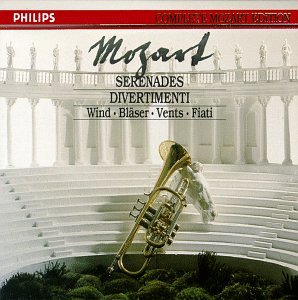 I really enjoy listening to chamber music and I just had to see how Audionet would handle it. Audionet reproduced small ensembles beautifully; the strings and piano were reproduced very naturally, yet without trying to be polite. Listening to chamber music was as special as it was delicate and intimately personal. Whether it was Mozart or Beethoven, it was always convincing and captivating. Lately, I’ve been listening to Mozart’s Divertimenti and serenades. One evening I put on Mozart’s Divertimento in B flat, K137 (Philips 462 790-2) performed by the Academy of St Martin-in-the–Fields under the maestro Neville Marriner. It is a complete Mozart edition boxed set, a must get set. This fabulous recording was beautifully rendered, producing an enveloping and delightful listening experience. The Audionet’s midrange was rich, and there was no high-frequency hardness. The recording came across very realistic with, again a natural ebb and flow: especially to instrumental tones and textures. The music emerged from a jet black background which gives greater insights into the subtleties of pitch variation and bowing. Enough to keep me emotionally involved throughout the night.
I really enjoy listening to chamber music and I just had to see how Audionet would handle it. Audionet reproduced small ensembles beautifully; the strings and piano were reproduced very naturally, yet without trying to be polite. Listening to chamber music was as special as it was delicate and intimately personal. Whether it was Mozart or Beethoven, it was always convincing and captivating. Lately, I’ve been listening to Mozart’s Divertimenti and serenades. One evening I put on Mozart’s Divertimento in B flat, K137 (Philips 462 790-2) performed by the Academy of St Martin-in-the–Fields under the maestro Neville Marriner. It is a complete Mozart edition boxed set, a must get set. This fabulous recording was beautifully rendered, producing an enveloping and delightful listening experience. The Audionet’s midrange was rich, and there was no high-frequency hardness. The recording came across very realistic with, again a natural ebb and flow: especially to instrumental tones and textures. The music emerged from a jet black background which gives greater insights into the subtleties of pitch variation and bowing. Enough to keep me emotionally involved throughout the night.
I enjoyed my time with the Audionet AMP and PRE1 G3 immensely. Audionet electronics are really exceptional products that I could easily place on my Bucket List. At $18k for a pair of Audionet AMP mono amps is HUGE bargain in today’s sky rocketing market if you ask me. Throw in its state of art PRE1 G3 preamp and you’ve got a dynamic duo that performs way beyond its asking price. As far as I’m concerned, the Audionet AMP and PRE1 G3 are serious contenders for top-notch solid-state electronics in the here and now and earned my choice as a “Most Wanted Components 2015” award. Highly recommended!


key kim
Specifications:
Pre 1 G3 Stereo pre amplifier $8,100
Stereo Times Masthead
Publisher/Founder
Clement Perry
Editor
Dave Thomas
Senior Editors
Frank Alles, Mike Girardi, Russell Lichter, Terry London, Moreno Mitchell, Paul Szabady, Bill Wells, Mike Wright, and Stephen Yan,
Current Contributors
David Abramson, Tim Barrall, Dave Allison, Ron Cook, Lewis Dardick, John Hoffman, Dan Secula, Don Shaulis, Greg Simmons, Eric Teh, Greg Voth, Richard Willie, Ed Van Winkle, Rob Dockery, Richard Doran, and Daveed Turek
Site Management Clement Perry
Ad Designer: Martin Perry


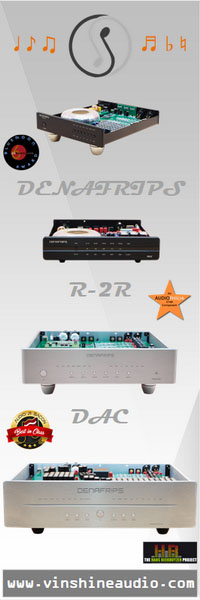
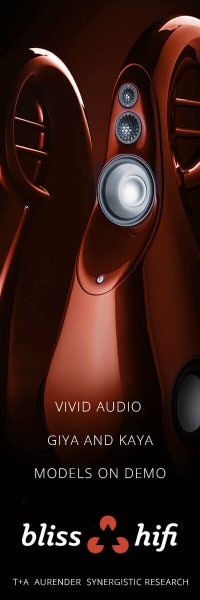
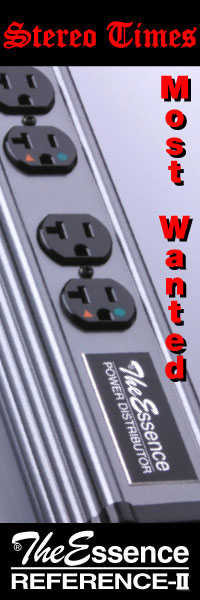
Be the first to comment on: Audionet AMP and PRE1 G3 preamplifier